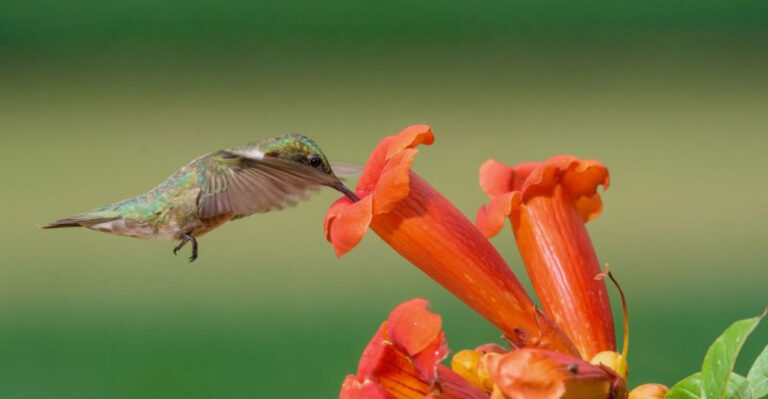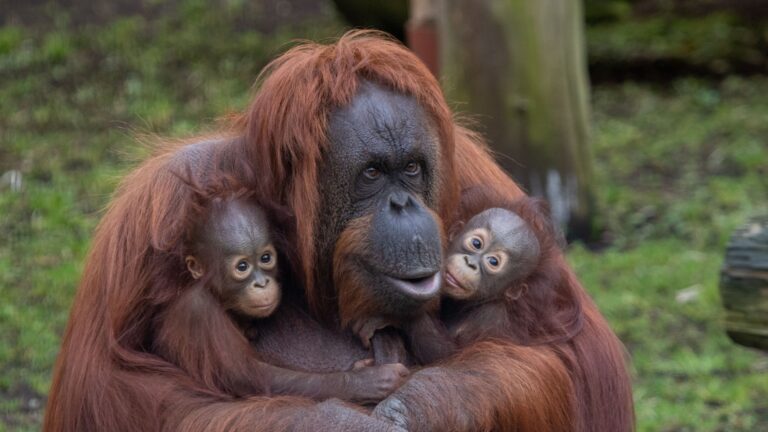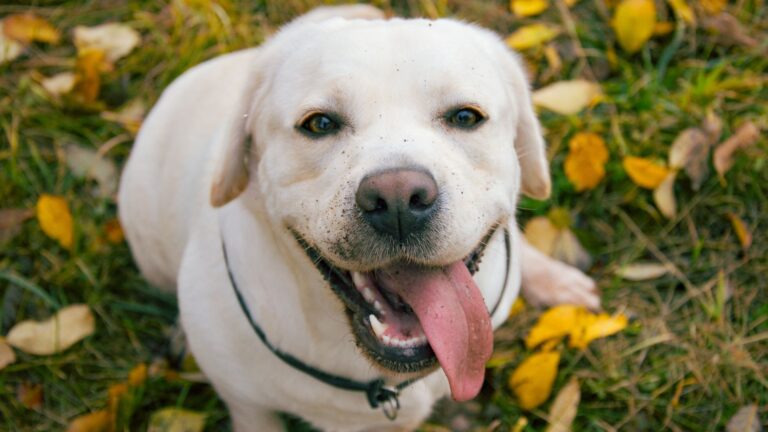17 Easy Ways To Keep Your Horse Happy And Mentally Stimulated
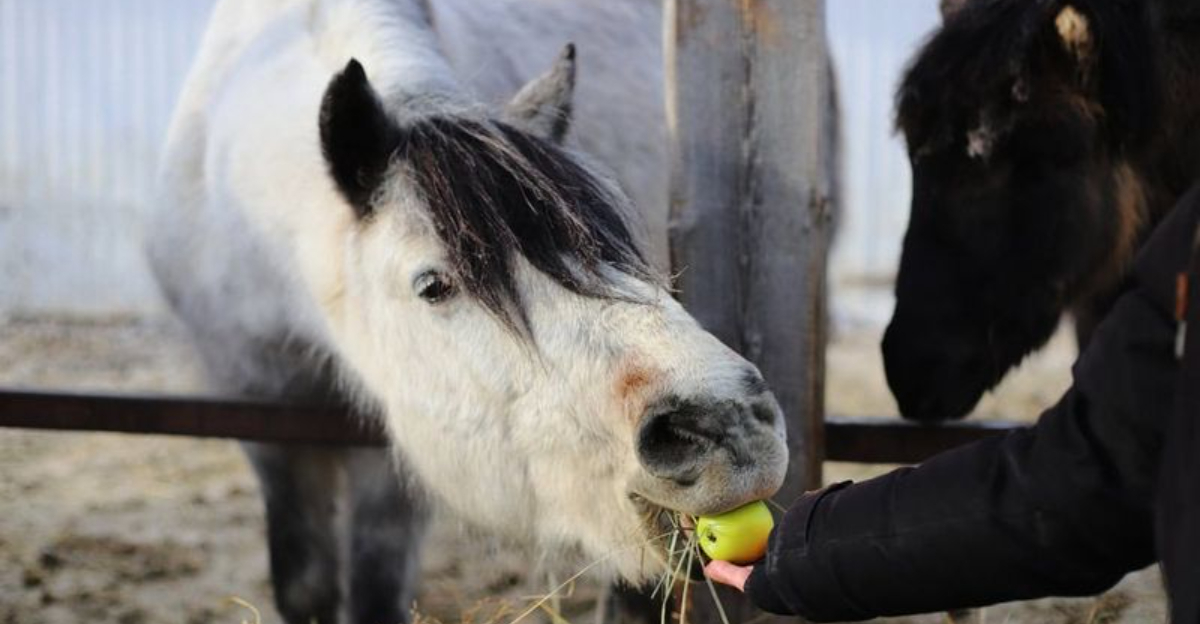
Ever wondered what’s going on in your horse’s head? These magnificent creatures need mental stimulation just as much as physical exercise.
Boredom can lead to unhealthy behaviors like cribbing or weaving. Fortunately, keeping your horse’s mind active doesn’t have to be complicated or expensive!
1. Turn Out Time Matters
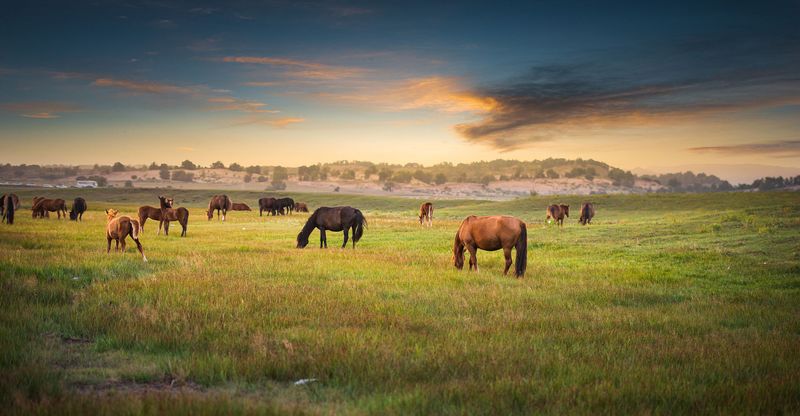
Freedom to roam does wonders for equine minds. Daily turnout allows horses to express natural behaviors like grazing and socializing.
Even just a few hours can dramatically improve mood and reduce stall vices. Wild horses travel miles daily – your domestic friend craves that same movement and choice.
2. Mix Up Your Riding Routine
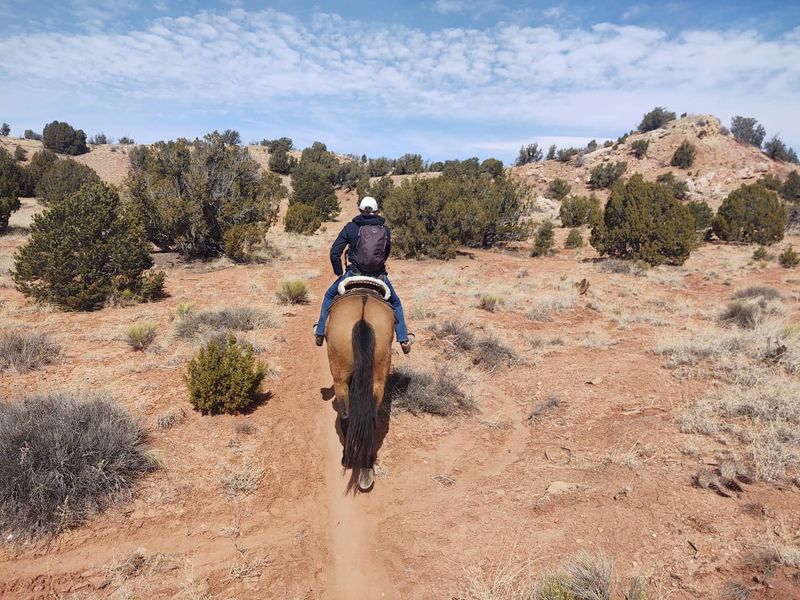
Horses get bored with arena circles just like we’d tire of running the same track daily. Surprise your four-legged partner with beach rides, woodland trails, or even playground-style obstacle courses.
Varying terrain challenges different muscles and keeps their mind engaged with new sights and sounds.
3. Buddy Up With Equine Friends
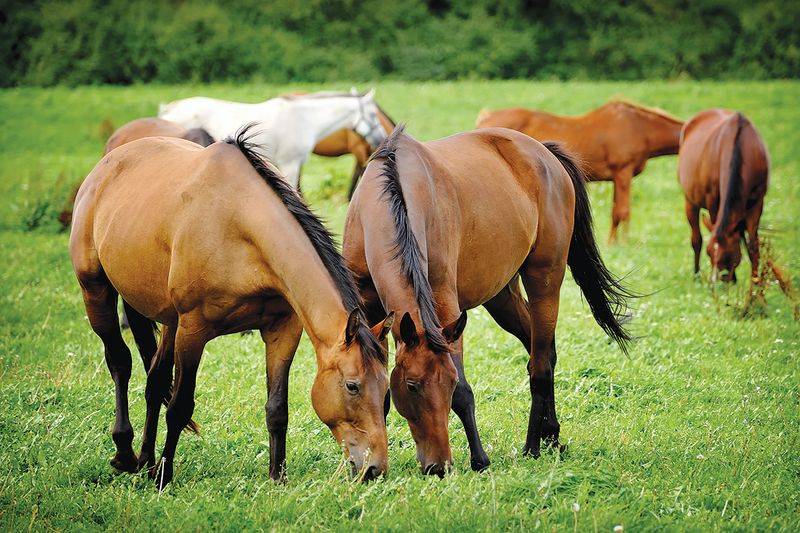
Horses thrive on companionship – they’re herd animals at heart! A consistent equine friend provides mental stimulation through play, mutual grooming, and security.
No horse available? Goats, donkeys or even chickens can make surprisingly good barn buddies. Social interaction satisfies deep instinctual needs for your horse.
4. Scatter Feeding Encourages Foraging
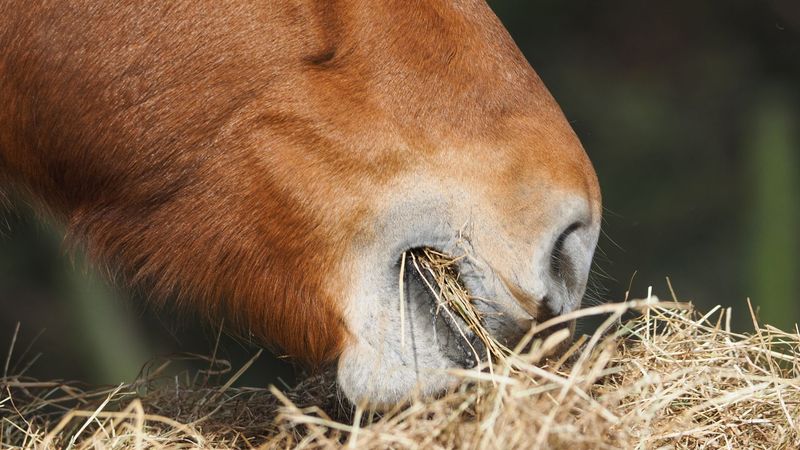
Toss hay in small piles around the paddock instead of one big pile. This mimics natural grazing patterns and keeps horses moving.
Wild horses spend 16-18 hours daily foraging! Recreating this behavior reduces boredom and stress. Your horse will thank you for the mental workout of finding each tasty morsel.
5. Food Puzzles Challenge The Mind
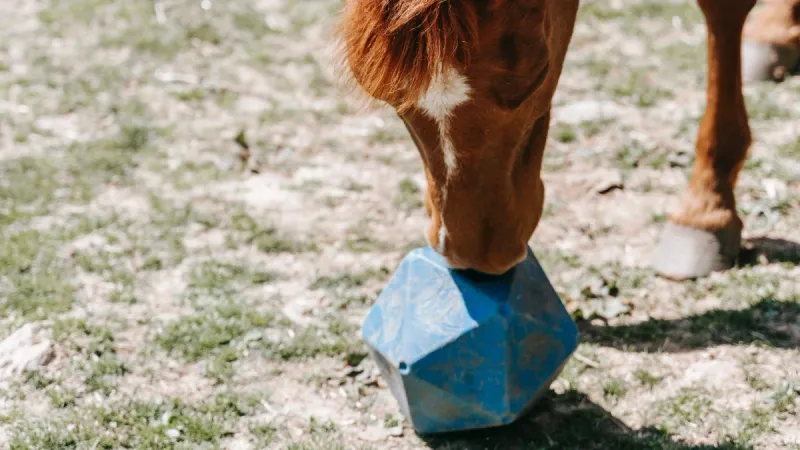
Treat balls that release goodies when rolled engage problem-solving skills. Watching a horse figure out these puzzles is both entertaining and heartwarming!
Start simple and gradually increase difficulty. Many horses become expert puzzle-solvers with practice. Mental stimulation through food motivation taps into natural behaviors.
6. Toys Aren’t Just For Dogs
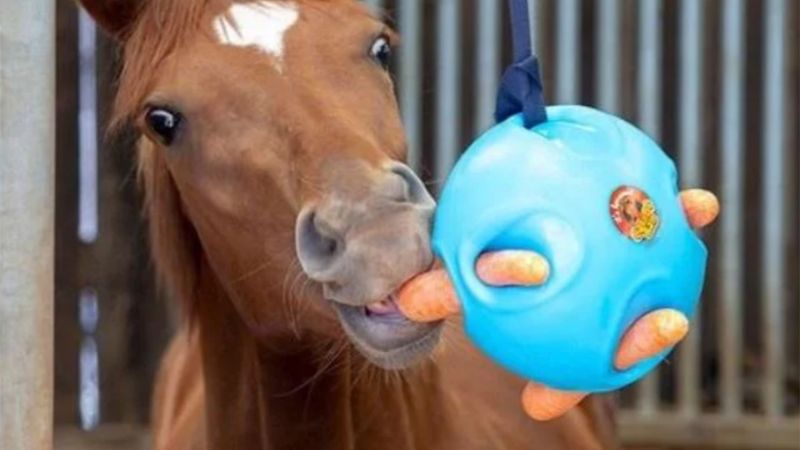
Hanging balls, sturdy brushes mounted at scratching height, and even old tires can become favorite playthings. Some horses develop preferences for specific toys.
Rotate toys weekly to maintain interest. Watching for which toys your horse gravitates toward helps you understand their play style and personality.
7. Ground Training Games Build Connection
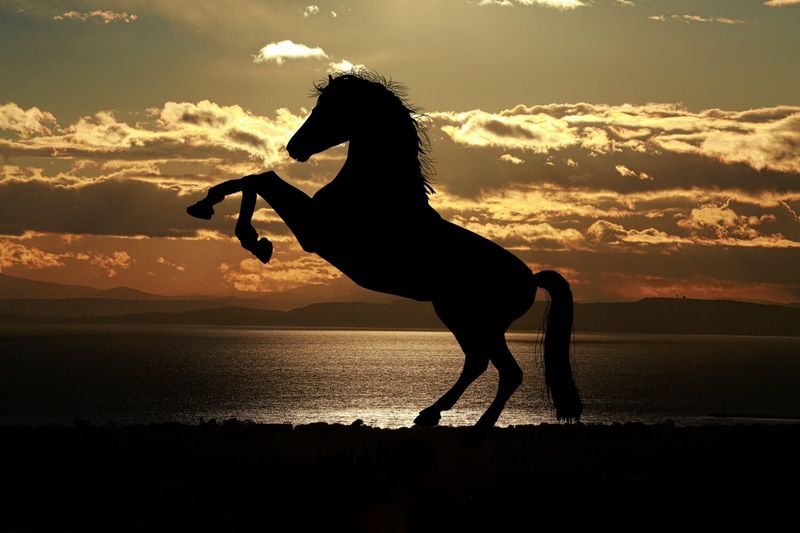
Liberty work teaches horses to engage with you willingly, no lead rope required. These mental exercises build trust and communication.
Start with simple following games, then progress to more complex patterns. The mental concentration required gives horses a satisfying workout without physical exertion.
8. New Scents Create Sensory Adventures
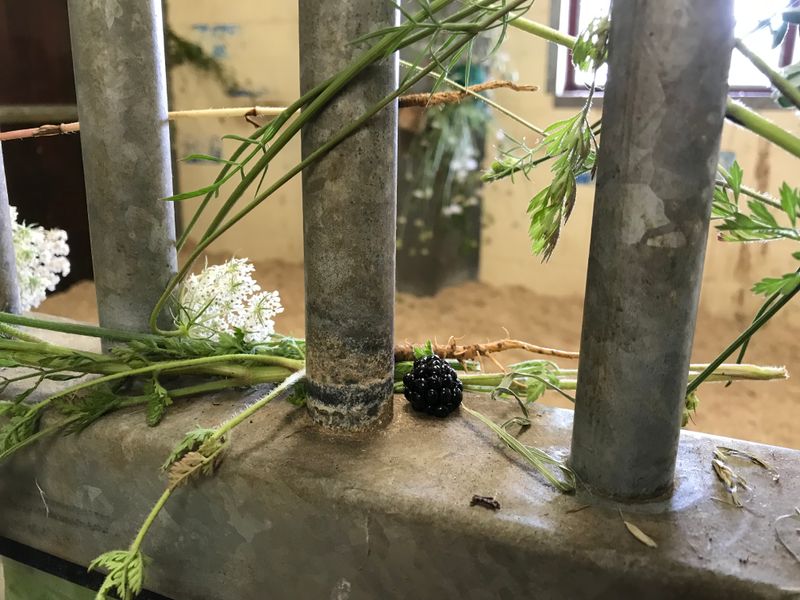
Horses have incredible noses—introduce safe herbs like lavender or mint around their living area. The sensory stimulation creates natural curiosity.
Try hiding treats in herb piles for a scent-tracking game. Varying smells enriches their environment in ways we often overlook but horses deeply appreciate.
9. Clicker Training Develops Intelligence
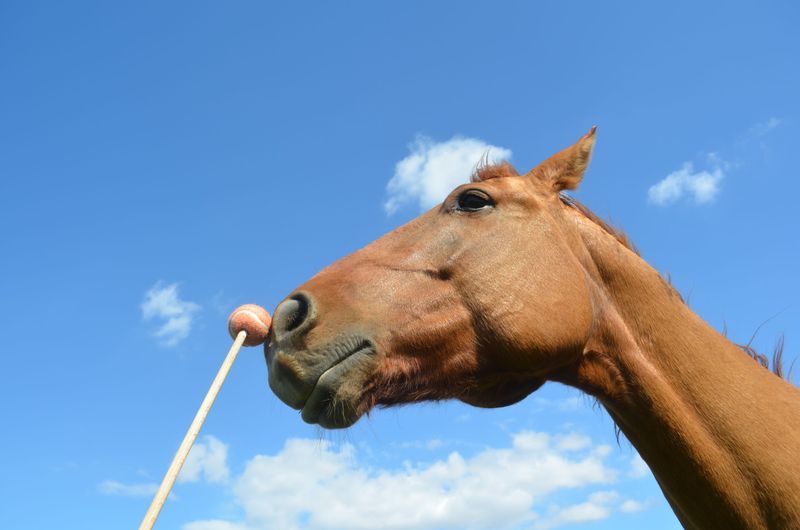
This reward-based method teaches horses to connect specific actions with positive outcomes. The mental engagement sharpens their problem-solving abilities.
Start with simple targets, then build to more complex behaviors. Horses often show visible pride when mastering new skills, and many begin offering creative behaviors on their own!
10. Music Changes Stable Atmosphere
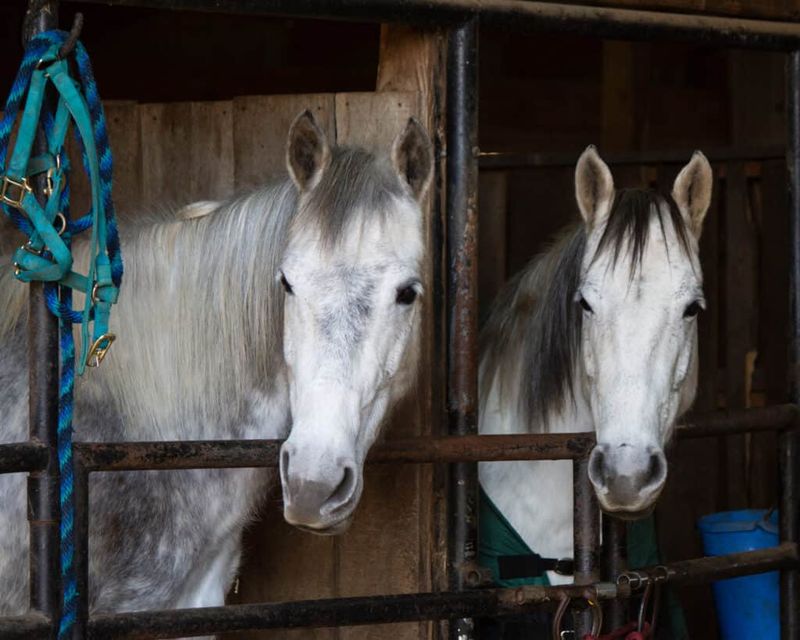
Surprisingly, horses show preferences for certain music styles! Classical pieces with steady rhythms often produce relaxation responses.
Playing radio talk shows can also provide comforting human voice stimulation. Experiment with different genres to discover what your individual horse enjoys – some even perk up for country tunes!
11. Obstacle Courses Challenge Problem-Solving
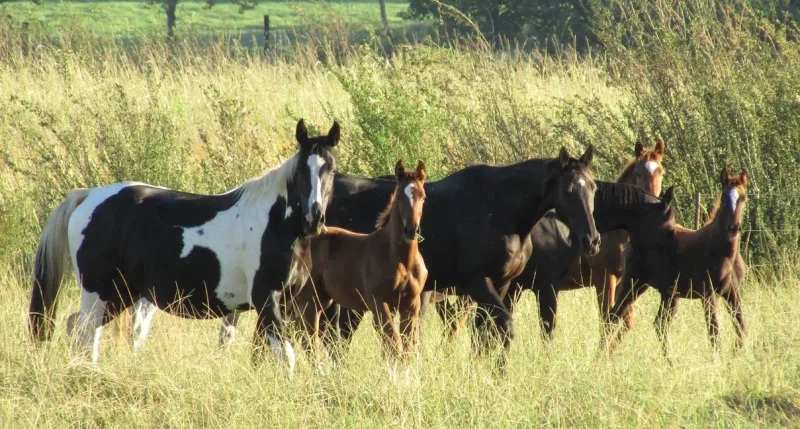
Set up safe challenges like poles to step over, tarps to cross, or barrels to navigate around. These mini-puzzles stimulate cognitive development.
Allow your horse to investigate each obstacle at their own pace. The confidence gained from conquering these challenges often transfers to everyday handling situations.
12. Trick Training Builds Confidence
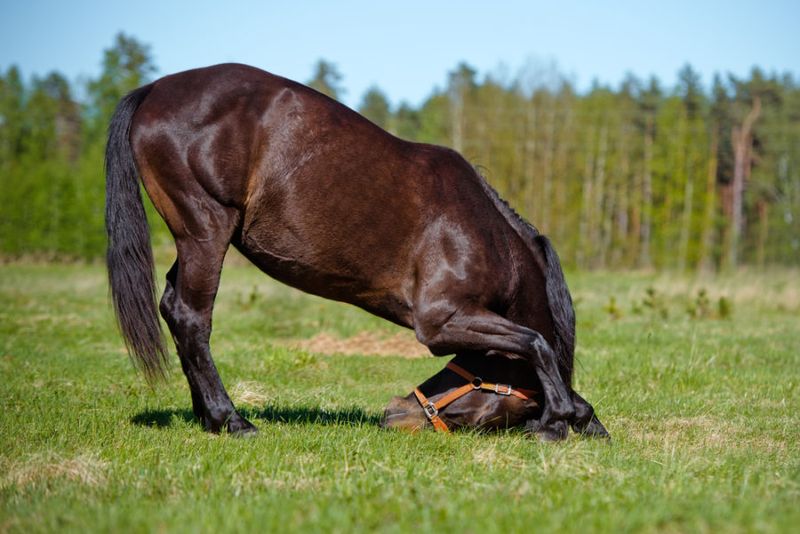
Teaching your horse to bow, smile, or fetch objects creates mental stimulation through positive reinforcement. These fun skills build a special bond between you.
Keep sessions short and always end on success. Many horses show visible excitement when they understand what you’re asking – that “lightbulb moment” is pure joy!
13. Changing Stall Views Prevents Boredom
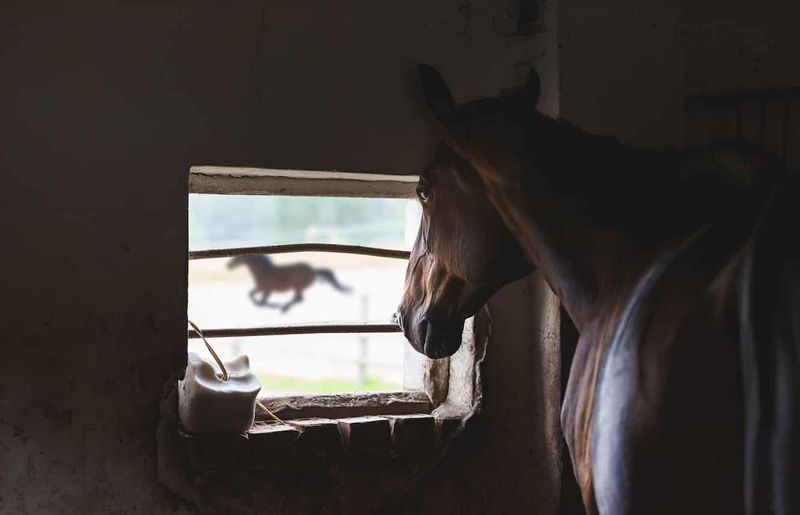
Rearrange stall positioning or add windows so horses can watch barn activities. Visual stimulation reduces weaving and other stereotypic behaviors.
Even moving a mirror to a new wall creates fresh interest. Horses are naturally curious creatures who benefit from environmental changes that stimulate their visual senses.
14. Grooming Sessions Become Bonding Time
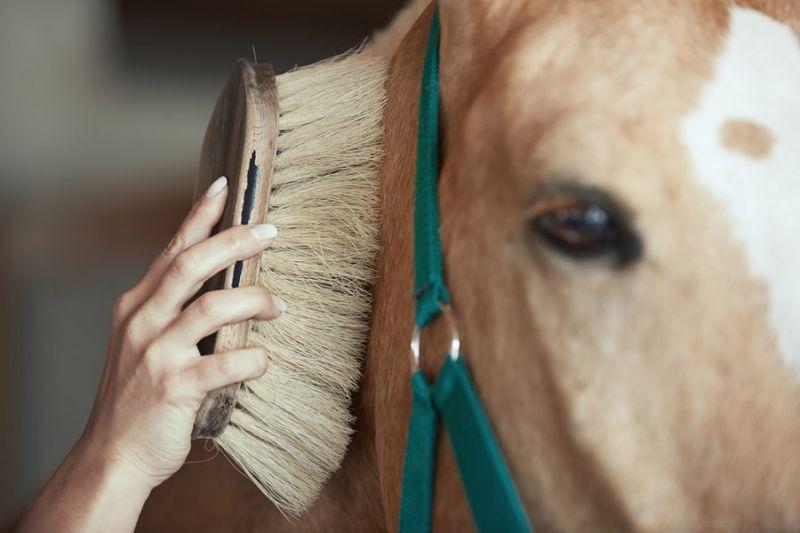
Beyond basic cleaning, discover your horse’s favorite scratching spots. Most horses have special places that trigger the endorphin-releasing “grooming face.”
Try different brushes and techniques to see what they enjoy most. These sessions satisfy mutual grooming instincts and create a relaxing mental break for your horse.
15. Varied Treats Expand Food Experiences
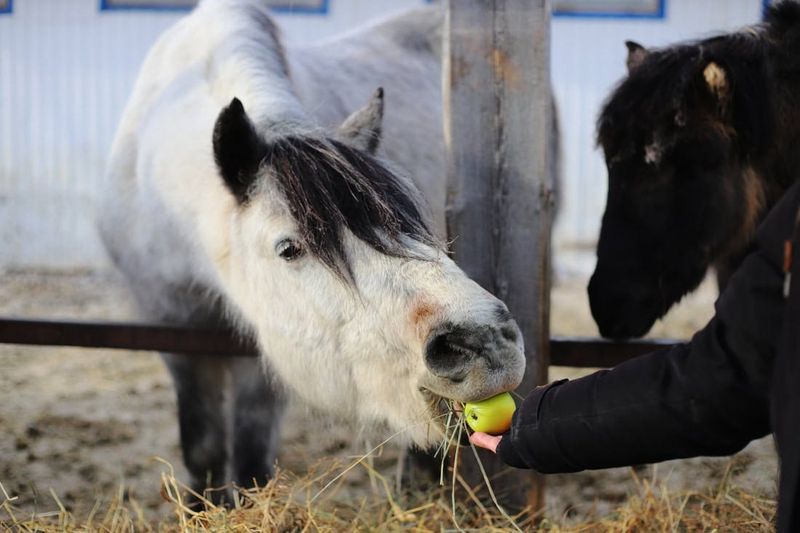
Carrots and apples are classics, but try offering safe options like watermelon, bananas, or pumpkin. Watching horses discover new flavors is delightful!
The mental stimulation of novel tastes engages their senses. Always introduce new foods gradually and in small amounts to ensure digestive safety.
16. Change Walking Routes Regularly
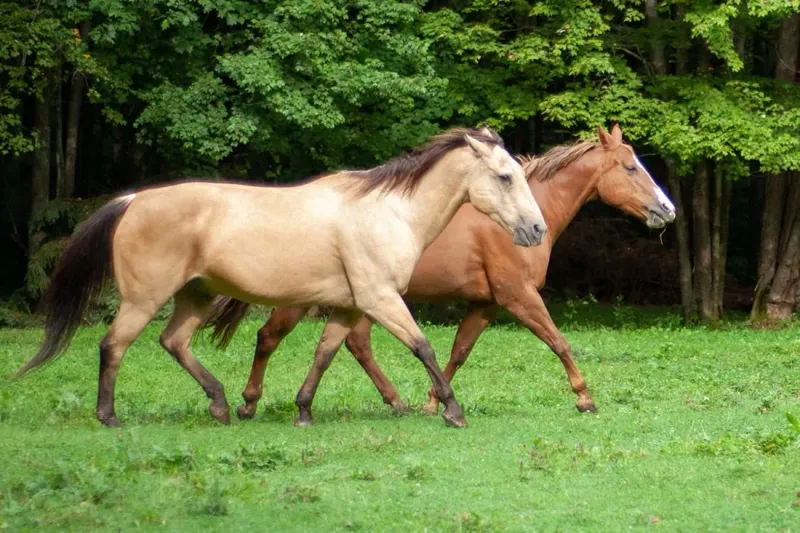
Walking the same path daily becomes mundane. Explore different areas of your property or neighborhood during hand-walks.
New paths create opportunities to encounter different sights, smells, and sounds. These sensory experiences are mentally refreshing for horses and help build confidence with novel situations.
17. Positive Trailer Experiences Reduce Stress
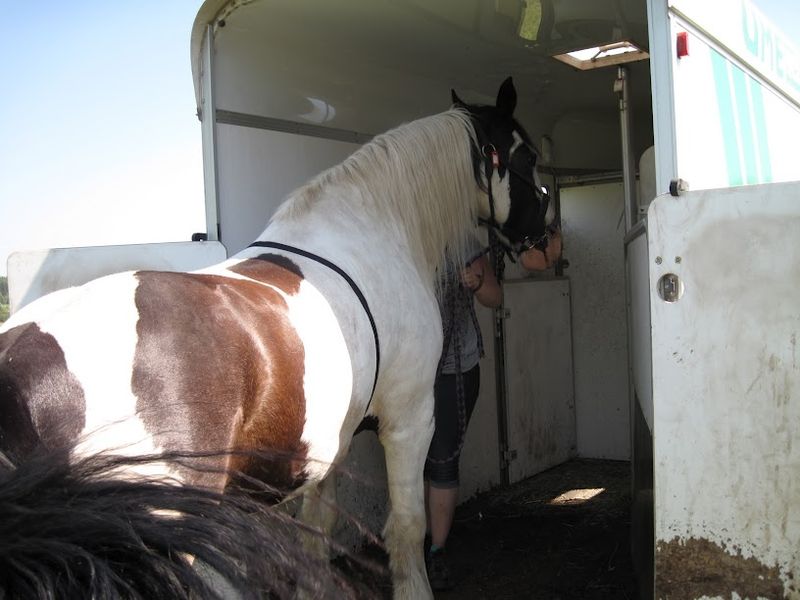
Transform trailer time from transportation necessity to enrichment opportunity. Feed special treats only in the trailer to create positive associations.
Practice loading without going anywhere. When trailer experiences become routine rather than rare events, horses develop confidence that eliminates travel-related anxiety.

